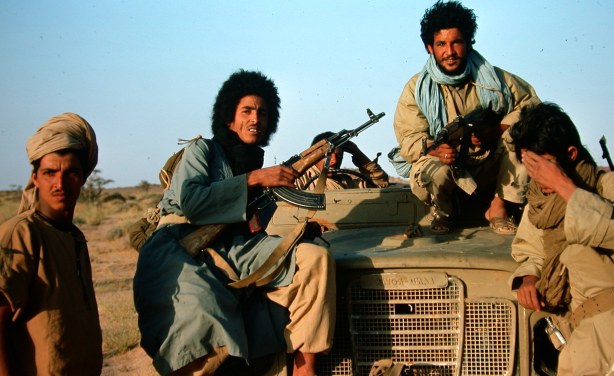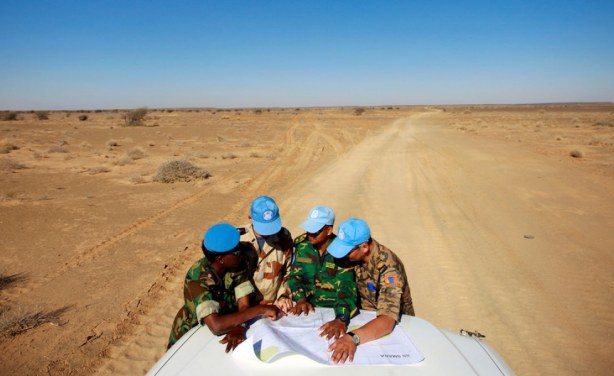
Polisario fighters inside Western Sahara in 1977, resisting a Moroccan takeover.
The Trump Administration's decision to recognise Kingdom of Morocco's sovereignty over the Sahrawi Arab Democratic Republic (SADR), in exchange for Morocco's recognition of Israel, has met with widespread condemnation. The U.S. administration's endorsement of Morocco's claims on its neighbor is a direct hit at the African Union, of which the SADR is one of 55 member states.
A former Republican Secretary of State, James A. Baker III, who previously acted as a United Nations envoy for the Western Sahara, accused Trump of "cynically trading off the self-determination rights of the people of Western Sahara." The African Union, Britain, France and Russia reiterated their support for a UN plan for a referendum in which the people of the SADR would choose between independence and integration with Morocco. Trump's decision follows renewed conflict between the Polisario Front, which fought Morocco's mid-70s invasion, and integration with Morocco. The Saharans ceased hostilities and backed the ballot proposal, but Morocco has continued to block a vote, while exploiting SADR's rich phosphate deposits.
For a historical perspective, read this 1977 front-page Washington Post article by AllAfrica's Tami Hultman, the first American journalist to travel to Western Sahara. She covered the conflict for AllAfrica's predecessor, Africa News Service, as well as for the Washington Post, the Los Angeles Times, the Washington Times and the BBC.

Peacekeepers with the UN Mission for the Referendum in Western Sahara (MINURSO) consult a map as they drive through vast desert areas in Smara, Western Sahara.
Morocco is set to resume relations with Israel - and the United States has granted a key concession on Western Sahara, Deutsche Welle reports. Moroccan King Mohammed VI annou Read more »
Moroccan army bases have reportedly come under attack from the Sahrawi People's Liberation Army units in recent days. The latest being an attack on the 13th base of the 67th legion ... Read more »
AllAfrica publishes around 400 reports a day from more than 100 news organizations and over 500 other institutions and individuals, representing a diversity of positions on every topic. We publish news and views ranging from vigorous opponents of governments to government publications and spokespersons. Publishers named above each report are responsible for their own content, which AllAfrica does not have the legal right to edit or correct.
Articles and commentaries that identify allAfrica.com as the publisher are produced or commissioned by AllAfrica. To address comments or complaints, please Contact us.